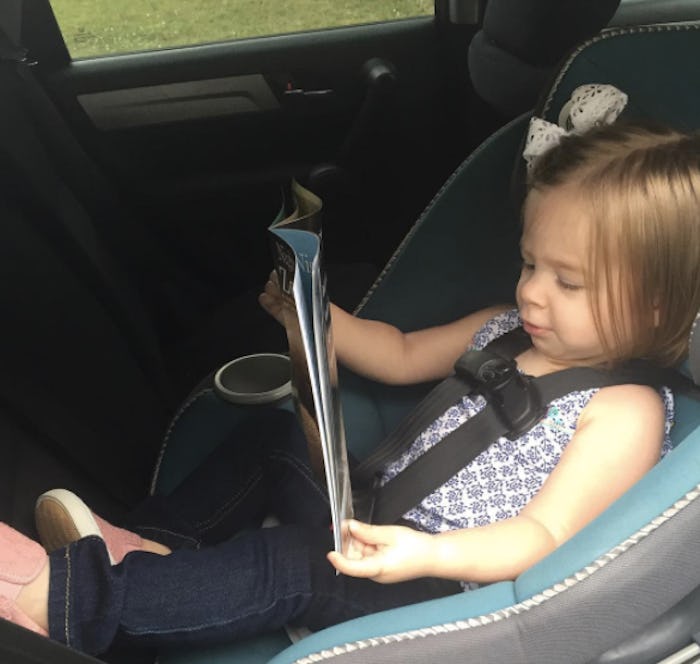More confusing than actual car seats is how to keep your little ones safe and comfortable while in them. It's now common knowledge that chest clips should be nipple-level, straps should be snug as can be, and rear-facing as long as possible is absolutely safer than forward-facing. You know that thick jackets and coats are a no-no while strapped in, and that the fear of kids breaking their legs while rear-facing is largely unfounded. But, what about overheating? You might be wondering, "is my baby more likely to overheat when rear-facing?" You know that leaving a child of any age unattended in a car seat for any amount of time, in any weather, is potentially unsafe, but does rear or forward-facing make a difference when considering overheating?
According to Dr. Rebecca Dixon, pediatric hospitalist with Riley Children’s Health of the Indiana University Health System, babies are no more likely to overheat when in a rear-facing car seat than they are in a forward-facing car seat. The air movement throughout the car will reach them rear-facing just as it would forward-facing, she says in an interview with Romper. This of course, she notes, is in a car with air movement. Dixon reminds us that babies should never be left in a car unattended, regardless of air movement in the car, as it is completely hazardous to do so.
Pediatrician Dr. Norina Ocampo, of Tenet Florida Physician Services at West Boca Medical Center, agrees. She also suggests, in an interview with Romper, that overheating in the car can be due to factors other than rear or forward-facing seats. For example, if the rear windshield is not tinted, Ocampo says, or if the interior color of the car and infant car seat color is dark, there is a greater chance of overheating due to the car being generally hotter.
In order to lessen the overall heat in the car, Ocampo recommends getting windows tinted to reduce UV exposure. She also suggests buying lighter colored fabric infant car seats, as darker colors absorb more heat. Sunshades could be helpful, but sometimes they reduce the air circulation in the car, and can do more harm than help in terms of reducing heat. Parents should always test them for efficacy before use, Ocampo says.
Generally speaking, whether your child's car seat is rear or forward-facing won't impact them overheating in the car one way or another. But, there are factors that could come into play. If you're unsure whether your child is safe in their car seat, speaking with your local car seat expert (often found at your neighborhood police or fire department) is a good next step.
